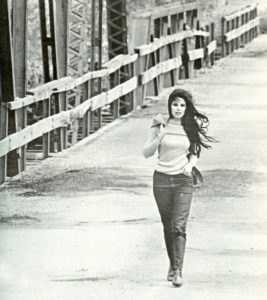Here’s my list of recommended Broadway, off-Broadway, and out-of-town shows, updated weekly. In all cases, I gave these shows favorable reviews (if sometimes qualifiedly so) in The Wall Street Journal when they opened. For more information, click on the title.
BROADWAY:
• Dear Evan Hansen (musical, PG-13, all shows sold out last week, reviewed here)
• Groundhog Day (musical, G/PG-13, some shows sold out last week, reviewed here)
• Hamilton (musical, PG-13, Broadway transfer of off-Broadway production, all shows sold out last week, reviewed here)
• On Your Feet! (jukebox musical, G, closes August 20, reviewed here)
 CLOSING SOON ON BROADWAY:
CLOSING SOON ON BROADWAY:
• Present Laughter (comedy, PG-13, closes July 2, reviewed here)
CLOSING NEXT WEEK ON BROADWAY:
• Sweat (drama, PG-13, Broadway transfer of off-Broadway production, closes June 25, original production reviewed here)
CLOSING SUNDAY OFF BROADWAY:
• Pacific Overtures (musical, PG-13, reviewed here)
CLOSING SUNDAY ON BROADWAY:
• Six Degrees of Separation (serious comedy, PG-13/R, reviewed here)


 A.R. Gurney, universally known in the theater world as “Pete,” was that rarity of rarities, a WASP of country-club-Republican lineage who wrote witty, thoughtful plays, most of them about the fast-vanishing world of upper-middle-class privilege into which he was born eighty-six years ago. In 2003 I called him “the John P. Marquand of American theater,” which still seems to me wholly apt. Like all prolific artists, Marquand very much included, Gurney was uneven, but his best plays are eloquent and intensely elegiac portraits of a world that is on the edge of extinction, and at least one of them, The Dining Room, is by way of being a masterpiece.
A.R. Gurney, universally known in the theater world as “Pete,” was that rarity of rarities, a WASP of country-club-Republican lineage who wrote witty, thoughtful plays, most of them about the fast-vanishing world of upper-middle-class privilege into which he was born eighty-six years ago. In 2003 I called him “the John P. Marquand of American theater,” which still seems to me wholly apt. Like all prolific artists, Marquand very much included, Gurney was uneven, but his best plays are eloquent and intensely elegiac portraits of a world that is on the edge of extinction, and at least one of them, The Dining Room, is by way of being a masterpiece. Mrs. T and I are taking the next three days off. We’ll be hopping in the family car at midday and driving to an undisclosed location not far from the water’s edge. My Wall Street Journal assignments for the week are finished and there’s nothing I absolutely have to get done between now and the beginning of next week, so that’s my plan: to do as little as possible.
Mrs. T and I are taking the next three days off. We’ll be hopping in the family car at midday and driving to an undisclosed location not far from the water’s edge. My Wall Street Journal assignments for the week are finished and there’s nothing I absolutely have to get done between now and the beginning of next week, so that’s my plan: to do as little as possible. It’s time once again for my annual appearance on
It’s time once again for my annual appearance on 
 Bobbie Gentry’s “Ode to Billie Joe” turns fifty years old next month, and we’re still listening to it—and talking about it. I was eleven years old when Gentry’s most famous record was released, and I have the strongest possible memories of the haunting impression that it made on me. I couldn’t hear it often enough. I still find it haunting a half-century later, albeit for somewhat different reasons.
Bobbie Gentry’s “Ode to Billie Joe” turns fifty years old next month, and we’re still listening to it—and talking about it. I was eleven years old when Gentry’s most famous record was released, and I have the strongest possible memories of the haunting impression that it made on me. I couldn’t hear it often enough. I still find it haunting a half-century later, albeit for somewhat different reasons. To be sure, I didn’t grow up in Mississippi, but Smalltown, U.S.A., positioned as it is on the edge of the Deep South, was and is a place where people live and speak very differently than they do up north. Even when it’s sung by someone who doesn’t have
To be sure, I didn’t grow up in Mississippi, but Smalltown, U.S.A., positioned as it is on the edge of the Deep South, was and is a place where people live and speak very differently than they do up north. Even when it’s sung by someone who doesn’t have